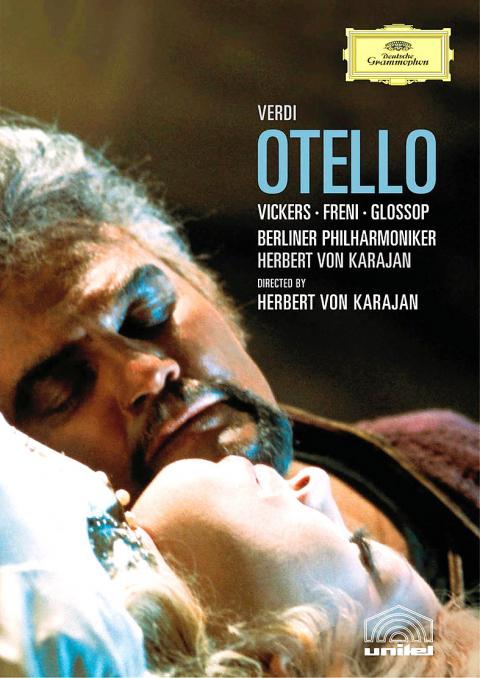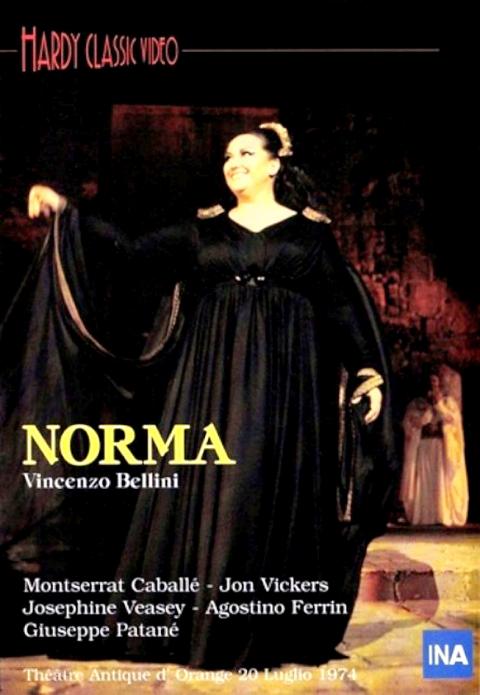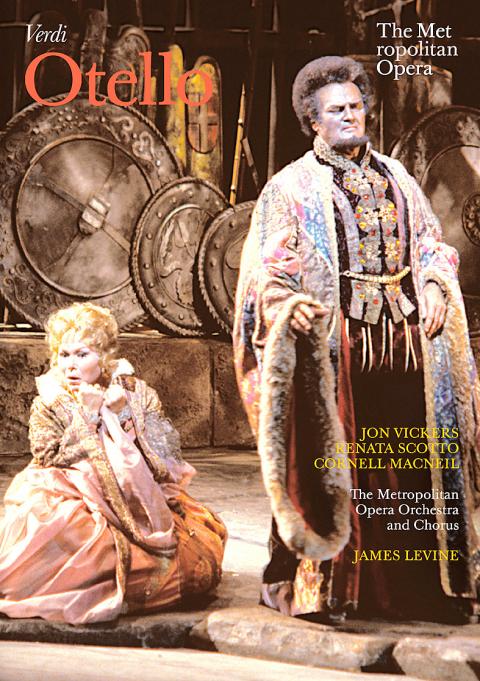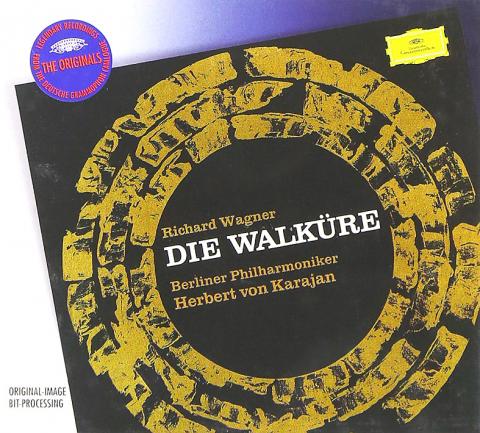The death earlier this month of the great Canadian-born opera tenor Jon Vickers prompts an appraisal of his most memorable recordings.
For myself, three stand out. First is his DVD of Bellini’s Norma performed in a high wind in the outdoors arena of the Theatre Antique d’Orange in 1974. Montserrat Caballe sang the title role of the Druid priestess, Vickers her lover Pollione and Josephine Veasey the younger priestess Adalgisa whom Pollione is secretly pursuing.
The Roman arena dates back to the 1st century AD, highly appropriate for this opera which is set among Druids in Roman-occupied France. The druids are restless and want to start an open revolt against the Romans. Norma, the head Druid, opts for caution, however. She has a secret reason for this — she’s long been having an affair with the Roman proconsul Pollione, and they have two children. When she discovers he now prefers Adalgisa, however, her attitude changes.

Vickers was characterized by a searing, tigerish voice. The combination of this with Caballe’s own distinctive and beautiful tone was bound to be especially electric, and when this was fortuitously combined with an impending storm the night the video was recorded the effect was unparalleled. The entire video has recently been uploaded onto YouTube, with good sound considering the circumstances, but unfortunately there are no subtitles. If you invest in the DVD you’ll find titles in French, English and Italian.
If you want to sample Vickers’s voice, listen to Meco all’altar di Venere [with me at the altar of Venus] at 19.19. As for Caballe, no one could reasonably miss her Casta Diva [chaste goddess] beginning at 33.18, plus the subsequent minutes where the wind performs marvels with her long veils.
There are two videos of Vickers in Verdi’s Otello and he’s sensational in both. The first comes from 1974 and is conducted by Herbert von Karajan, with the Berlin Philharmonic Orchestra. It has Mirella Freni as a lyrical Desdemona and Peter Glossop as a highly malign Iago. Subtitles are in English, German, French and Chinese. The complete video is on YouTube, but with Spanish subtitles only.

The second dates from 1978 and is a live performance from the Met conducted by James Levine (a recommendation in itself). Renata Scotto is a fabulous Desdemona, and Cornell Macneil a very powerful Iago. Subtitles are only in English.
It’s impossible to choose between these two superb renditions. In both Vickers’ voice and his physical presence are outstanding. This was a Vickers role par excellence, and he performed it for several years at the Salzburg Festival in the early 1970s, as if warming up for these video recordings.
Karajan also selected Vickers for the part of Siegmund in his recording of Wagner’s Ring cycle. Siegmund only appears in Die Walkure but his is it’s a crucial role nonetheless. Nowhwere did Wagner write more lyrically than in Die Walkure Act One, and this act is dominated by Siegmund and his long-lost sister Sieglinde (Gundula Janowitz).

This version of Wagner’s masterpiece was dubbed by some critics as “the chamber music Ring,” a designation Karajan hated. But it’s these very laid-back qualities that have always endeared it to me. Vickers, of course, is anything but laid-back, but this only adds to the potency of the mix. The evil Hunding is sung with strength by Martti Talvela, but then this is a role in which it’s almost impossible to fail.
Vickers’s performance in the title role in Britten’s Peter Grimes has long been considered a masterpiece. A highly knowledgeable friend, after hearing of Vickers’ death, reported it was the performance that stayed most indelibly in his mind. It was filmed in 1981 and is from the Covent Garden Opera, conducted by Colin Davis. Subtitles are in English, German and Spanish. A seven-minute extract can be seen on YouTube, uploaded by Bob Kingston.
For genuine Vickers fans there are also performances as Parsifal and Tristan, and as Florestan in Beethoven’s Fidelio. Also very marked, and again from Von Karajan, is his performance as Canio in Leoncavallo’s Pagliacci. An extract of him singing Vesti la Giubba can be seen on YouTube in several versions.

Jon Vickers was a once-only artist. No one else has come near him for passionate commitment. A few have thought that his acting exceeded his singing, to the detriment of the latter, but as I write this his heroic tones echo in my mind like no one else’s.


In the March 9 edition of the Taipei Times a piece by Ninon Godefroy ran with the headine “The quiet, gentle rhythm of Taiwan.” It started with the line “Taiwan is a small, humble place. There is no Eiffel Tower, no pyramids — no singular attraction that draws the world’s attention.” I laughed out loud at that. This was out of no disrespect for the author or the piece, which made some interesting analogies and good points about how both Din Tai Fung’s and Taiwan Semiconductor Manufacturing Co’s (TSMC, 台積電) meticulous attention to detail and quality are not quite up to

April 21 to April 27 Hsieh Er’s (謝娥) political fortunes were rising fast after she got out of jail and joined the Chinese Nationalist Party (KMT) in December 1945. Not only did she hold key positions in various committees, she was elected the only woman on the Taipei City Council and headed to Nanjing in 1946 as the sole Taiwanese female representative to the National Constituent Assembly. With the support of first lady Soong May-ling (宋美齡), she started the Taipei Women’s Association and Taiwan Provincial Women’s Association, where she

Chinese Nationalist Party (KMT) Chairman Eric Chu (朱立倫) hatched a bold plan to charge forward and seize the initiative when he held a protest in front of the Taipei City Prosecutors’ Office. Though risky, because illegal, its success would help tackle at least six problems facing both himself and the KMT. What he did not see coming was Taipei Mayor Chiang Wan-an (將萬安) tripping him up out of the gate. In spite of Chu being the most consequential and successful KMT chairman since the early 2010s — arguably saving the party from financial ruin and restoring its electoral viability —

It is one of the more remarkable facts of Taiwan history that it was never occupied or claimed by any of the numerous kingdoms of southern China — Han or otherwise — that lay just across the water from it. None of their brilliant ministers ever discovered that Taiwan was a “core interest” of the state whose annexation was “inevitable.” As Paul Kua notes in an excellent monograph laying out how the Portuguese gave Taiwan the name “Formosa,” the first Europeans to express an interest in occupying Taiwan were the Spanish. Tonio Andrade in his seminal work, How Taiwan Became Chinese,